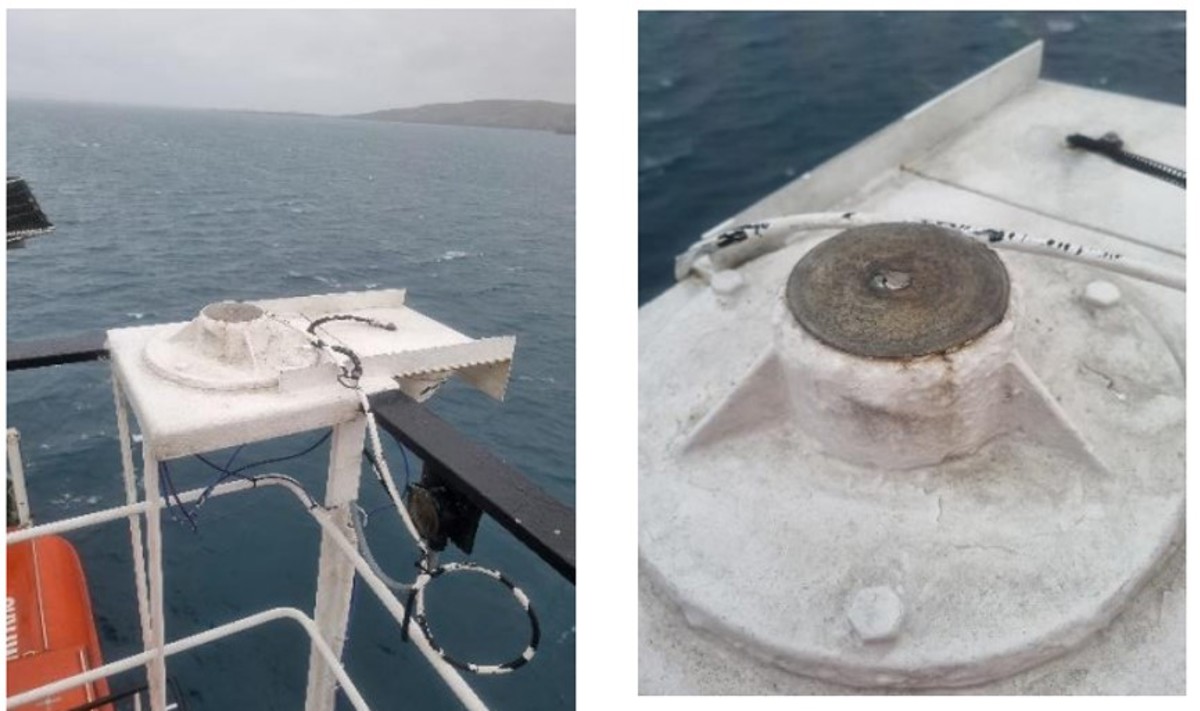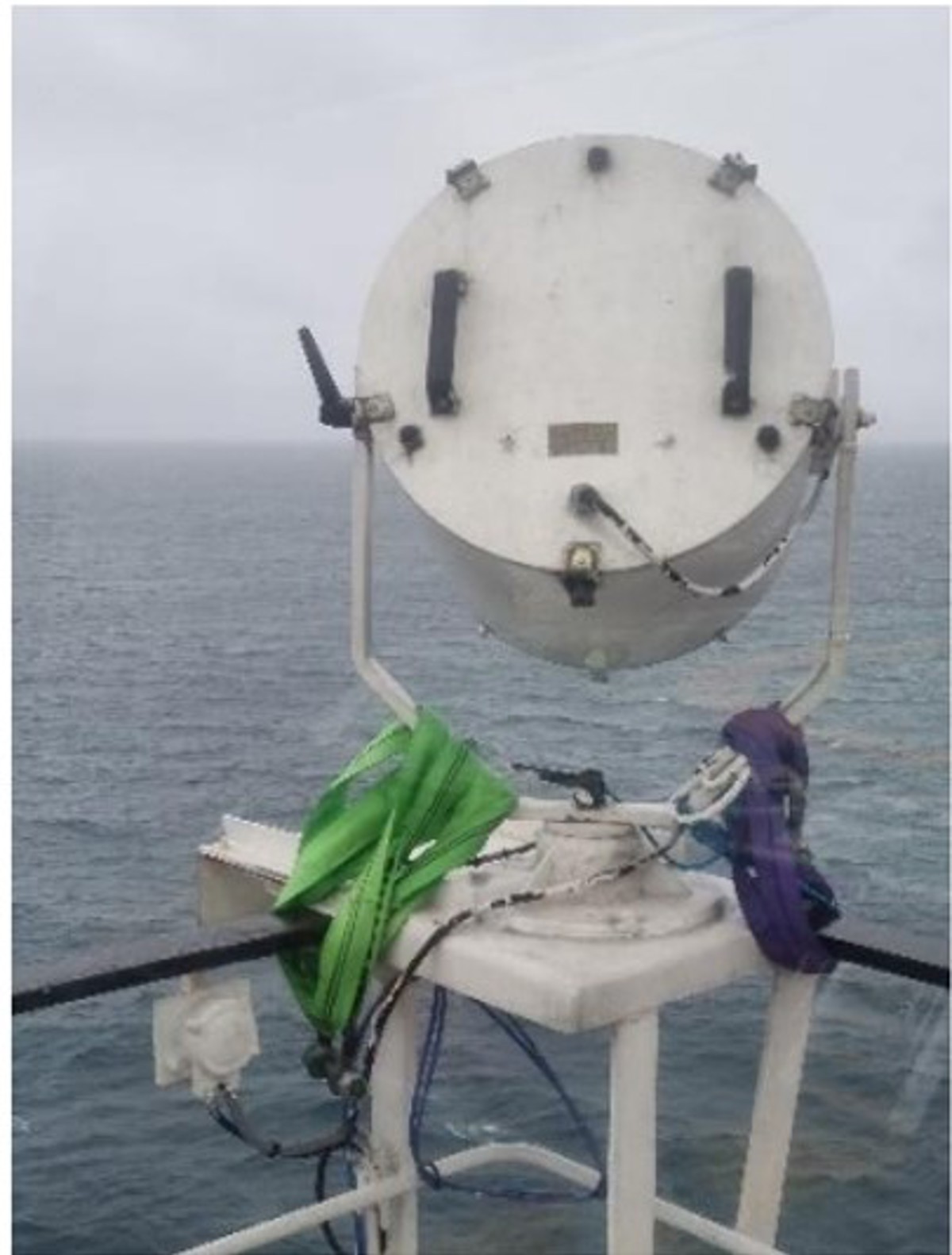Searchlight fell from vessel during heavy weather
- Safety Flash
- Published on 31 May 2022
- Generated on 1 March 2026
- IMCA SF 13/22
- 1 minute read
Jump to:
The starboard wing searchlight became detached from its mounting bracket in heavy weather.
What happened?
The starboard wing searchlight became detached from its mounting bracket in heavy weather, and fell directly into the sea, snapping the secondary tether that was in place.
What went wrong?
The secondary tether was jury rigged out of a whip-check designed to contain a parting airline; it was not designed to take any loads.
Swipe to see images >
What was the cause?
Our member identified the following:
- Immediate Causes
- Exposure to extreme weather
- Dropped Object
- Underlying Causes
- Inadequate safety controls
- Root Cause(s)
- Improper safety securing device – Secured with whip check which is not designed to hold weight
Related Safety Flashes
-
IMCA SF 11/22
4 May 2022
-
-
IMCA SF 14/21
20 May 2021
-
IMCA SF 02/19
13 February 2019
-
IMCA Safety Flashes summarise key safety matters and incidents, allowing lessons to be more easily learnt for the benefit of the entire offshore industry.
The effectiveness of the IMCA Safety Flash system depends on the industry sharing information and so avoiding repeat incidents. Incidents are classified according to IOGP's Life Saving Rules.
All information is anonymised or sanitised, as appropriate, and warnings for graphic content included where possible.
IMCA makes every effort to ensure both the accuracy and reliability of the information shared, but is not be liable for any guidance and/or recommendation and/or statement herein contained.
The information contained in this document does not fulfil or replace any individual's or Member's legal, regulatory or other duties or obligations in respect of their operations. Individuals and Members remain solely responsible for the safe, lawful and proper conduct of their operations.
Share your safety incidents with IMCA online. Sign-up to receive Safety Flashes straight to your email.

